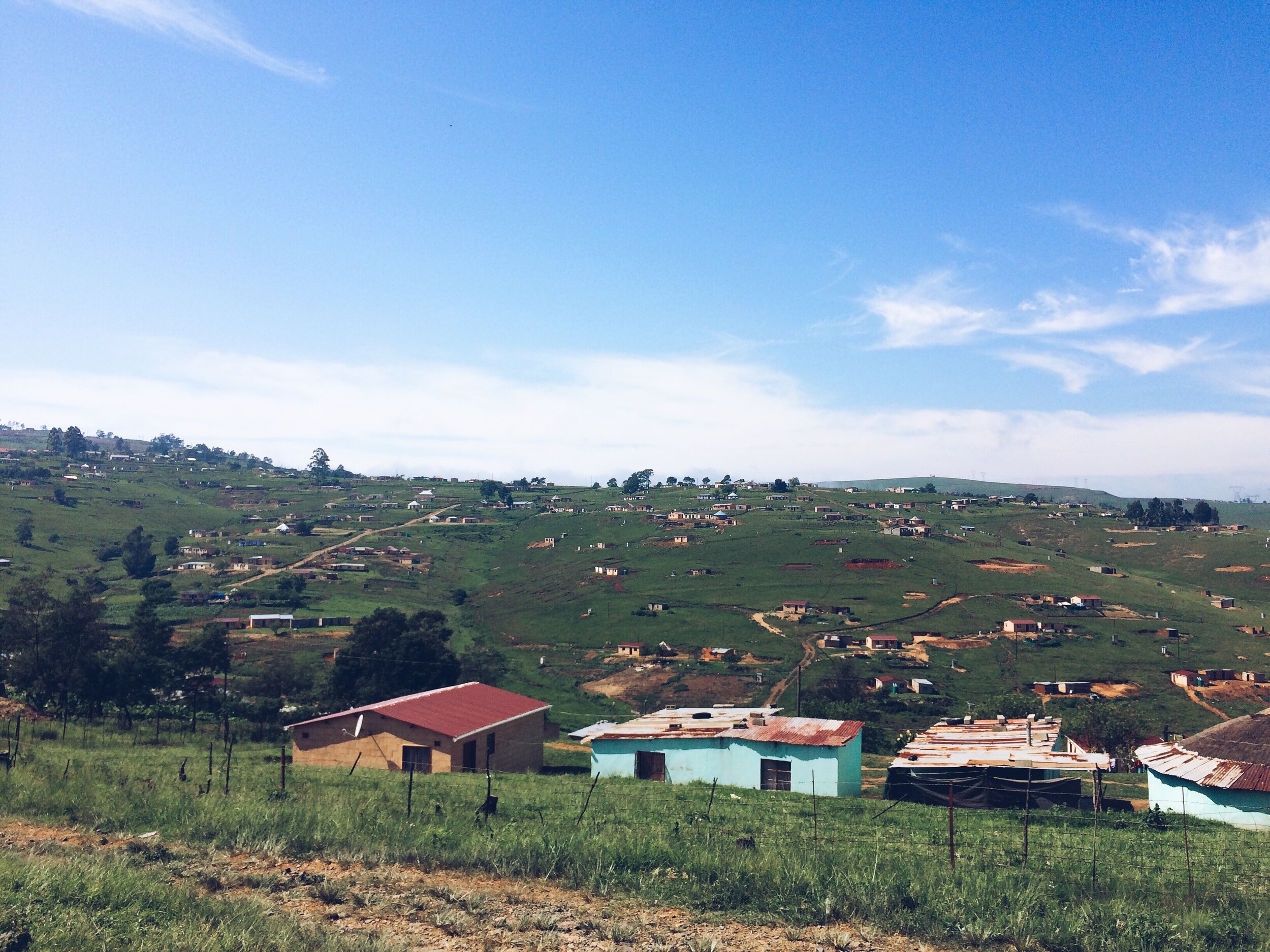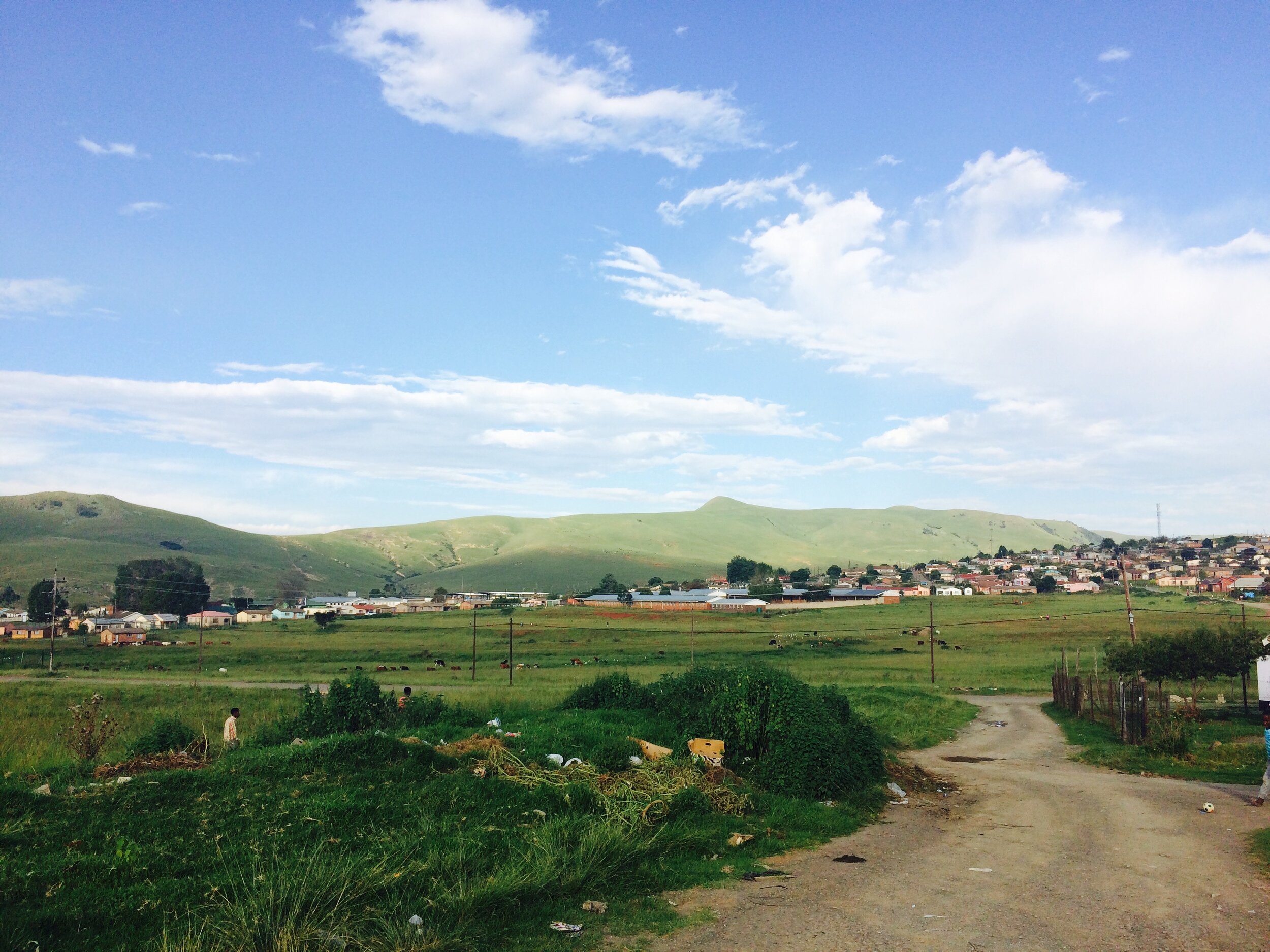Peace Corps South Africa
On 16 January 2020, I will begin my journey as a Peace Corps Community HIV/AIDS Outreach Coordinator in South Africa. This January, five years to the day, from when I first journeyed to Pietermaritzburg, South Africa, I will leave California for the next 27 months to immerse myself in a community promoting peace, building friendships, and working directly on HIV prevention and care programs.
For those who have diligently followed my blogging journey, you will recall I began writing while studying in South Africa in 2015. The months I spent running with the zebras, playing soccer barefoot, and drinking tea have become the foundation of my greatest pursuits. I knew when I came home from South Africa that my time in the Rainbow Nation left a permanent mark on me.
While studying in Pietermaritzburg, I spent a month volunteering at a nearby family centre, Ethembeni. Ethembeni works on HIV/AIDS care and prevention through a variety of community programs that serve all populations. I became involved with visits to the homes of those affected by HIV/AIDS and Tuberculosis (TB) in the community.
On one TB home visit, I met an elderly woman sitting in her home under a pile of crocheted blankets. She was nestled in the crook of a couch, the blanket's fading oranges and greens made her dark, weathered face and the whites of her eyes stand out. There were three of us volunteers visiting her: a guy from London, a guy from this little town in South Africa, and me. She spoke quickly in Zulu, gesturing wildly, with a noticeable look of pain shadowing her face every time she raised her arms.
We learned she was living alone. Years ago her daughter had left. Until recently her granddaughter had been living with her and taking care of her. But, the week before our visit, her granddaughter had left as well, deciding the burden of caring for her sick grandmother was too much.
Her hands, connected to spindly arms, shook as she spoke. Her collar bones jutted out along the neckline of her nightgown; her shoulders were so pointy. The Ethembeni leader accompanying us explained someone would return to visit her next week from the family centre to make sure she had her medication and food. We read a passage of scripture to her from the Bible, prayed, and said our goodbyes. Just as I was about to stand up from the plastic chair I was sitting in next to the couch, she reached out, and with a surprising show of strength, grabbed my arm. Looking me in the eye, she spoke in English for the first time in the hour since we arrived and said, “You must stay and take care of me. You must stay. I have no one.”
I cannot recall what I said or did. I know I hugged her before I left. Exiting her dim home into the glaring sunlight, I was silent. The three of us solemnly walked back to the Ethembeni Family Center. Kicking a rock along the red dirt road, I contemplated dropping out of college and doing exactly what she asked of me. Ultimately, I knew Ethembeni was there for her. But nothing could shake the helplessness and fear I saw in her eyes.
Over the past few years, I have reflected on this moment. It was a defining moment, giving me a real-life person to put with the shocking disease and poverty infesting Sub-Saharan Africa. No longer was this a distant concept, it was embodied in a woman sitting in front of me.
There is this concept of “bearing witness." Most notably this phrased was used by Elie Wiesel to describe the inaction he witnessed during the Holocaust. Wiesel said when we witness horrific events, we must use what we witness as fuel. Rather than being passive to the sufferings around us, we should act to prevent further atrocities. He implored people to not dare wander into the attitude of indifference, as that is the opposite of love and life. He said, “Human suffering anywhere concerns men and women everywhere.”
This is what I have felt for the last five years. In South Africa, I saw and experienced alarming inequalities and poverty. I came back unsure of how I was to proceed. Some people who studied with me started projects to raise money for organizations we volunteered with, others decided to be missionaries, and some appeared to jump right back into life in California. My response was to dive into volunteering with public health Uganda. My attempts to return to South Africa following my return in 2015 felt like a room of closed doors. But the Uganda door was wide open.
In three years, I’ve been to Uganda five times, seeing things I could not stand idly by and let continue to occur. It infuriates me to observe how poorly health education has been addressed in both South Africa and Uganda. People can't possibly know what they don’t know. But, how can Westerners who pour so much money into these countries for development not use education as a basis for all services? So, I helped start a public health program in Uganda that has thus far delivered health education to 4,147 adults and children.
Yesterday, I was looking back at my blogs from South Africa. I found this passage describing the moment in South Africa when bearing witness to the lack of health education angered me:
The team I was with from Ethembeni meant up with some people from the health department. When we arrived, I was handed a box of condoms and told to pass them out. I struggled with this because the people in the community did not want the test, we had to convince them, but they would take handfuls of condoms. I couldn’t decide if this was enabling or helping.
The next day we had a presentation on HIV/AIDS. It will take transforming a culture, people’s mindset, to make a dent in the AIDS epidemic. Where we are staying during this semester, KwaZulu Natal, is the epicenter of this disease. I want to educate people, for them to decide themselves to change behaviors because of the knowledge they have, not just because some government official told them it’s a good idea… It is so much more than a health issue, it is about people’s standards/morals, education, mindset, they have to decide to change the course of this disease.
When I wrote those words in 2015, I knew nothing about public health. I still have so much to learn, but now I have matched those feelings with academic knowledge, especially after finishing grad school in May.
Being the Project Manager for a health education project in Uganda turned what I witnessed into action addressing the problem.
Paul Farmer, public health extraordinaire and founder of Partners in Health, says in his book Pathologies of Power, “No matter how great the pain of bearing witness, it will never be as great as the pain of those who endure, whether in silence or with cries.” The “pain” for me to bear witness in South Africa and Uganda is so minimal compared to those suffering in Sub-Saharan Africa.
Volunteering with the Peace Corps as a Community HIV/AIDS Outreach Coordinator is so right for me. I want to be on the ground doing the work. I want to be awakened in the morning by the sound of chickens and permanently stain all my socks red from the dirt. I want to talk about HIV/AIDS with youth and have them teach me the local language. I want to see the sick find hope and build friendships with the most unlikely of people.
Some people might describe 27 months with the Peace Corps as “giving up” two years of their life. For me, it feels a lot like two years of living life fully. While some may see the “lack” of things I will have, I see the depth of living a life revolving around others. Some might find it unbelievable I will be away for two years, yet I see an overflow of opportunities to build relationships in my South Africa community.
The drive and passion I feel to enact positive change because of what I saw in Uganda led to huge personal sacrifices, shouldering massive responsibilities, and the endless images and stories of deathly ill kids playing on repeat in my head. The Peace Corps will be no different. I’m under no illusion of the challenge I am about to take on. And I’m ready to go.
When I left Ethembeni almost five years ago, I hadn’t the faintest idea of how public health would become my passion or the opportunities I would be provided to grow in it. Now, I am about to spend two years doing community health back where it all started in South Africa. Life is a pretty grand adventure.
—
I’ll be blogging for the next two years, so keep following this blog!






